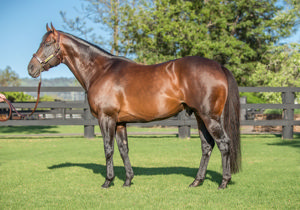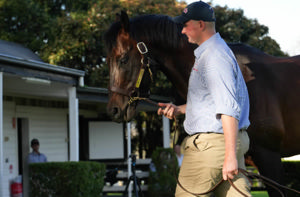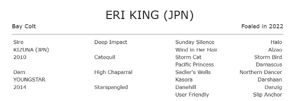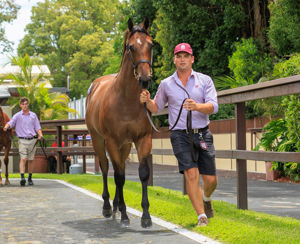It's a fact of life that many breeders, owners and industry employees have to travel extensively to conduct their horse business. Yearling sales, race meetings, stud open days and visits etc can take the industry player all across the country and overseas!.
Accordingly, when the ATO issues updated guidelines as to what the current rules are re with travel claims, well we take this very seriously. These guidelines, contained in a new draft tax ruling, reflect not only existing rules, but what travel principles have emerged from recent tax cases in the area.
Believe me, this draft ruling has attracted considerable interest from a broad range of interested parties, so it figures that the breeding and racing industry should be given a relevant insight as to what these new rules mean to them.
This article will discuss travel principles for both industry employees (which includes business owners employed by their own companies or trusts) and those running a horse business (see FAQ at the end).
Overview of "travel" principles
Fundamentally, the underlying principles used in determining if an employee's travel expenses are deductible havenotchanged. Rather, the Draft Ruling simply provides new guidelines on how these principlesare applied to different work and business arrangements.
Whilst travelling to work is a prerequisite to the earning of income, it is not undertakenin thecourseof earning that income.The courts have well established that travel to and from work is not deductible. Such home-to-work travel is generally a function of the taxpayer's choice of where to live (e.g., the choice to live some distance away from work).
In contrast, travel undertaken by an employeein performing work activitieswill be deductible. This is commonly referred to as 'travelling on work'.
A'travel expense'for the purposes of the Draft Ruling is dealt with separately under two broad categories (both separately discussed in more detail below), being:
•transport expenses– being travel by airline, train, car, bus or another vehicle; and
•accommodation, meal and incidental expensesof an employee when they travel away from home for work.
1.Deductibility of transport expenses
Transport expenses are deductible where the employee undertakes travelin performing their work activities.The ATO has identifiedfour key factorsthat should be considered when determining if a transport expense is deductible (i.e., undertaken in performing the employee's work activities), which are as follows:
(a) Whether the work activitiesrequirethe employee to undertake the travel.
Example 1
A sales company employee isrequiredto drive into the country to inspect weanlings/yearlings.
(b) Whether the employee ispaid, directly or indirectly, to undertake the travel.
In this draft ruling, the ATO has taken the opportunity to reiterate that the mere receipt pf atravel allowancedoes not automatically lead to the conclusion that the employee is paid to undertake relevant travel.
Example 2
Though a stud farm manager may receive an allowance for travel to and from work, this does not automatically mean that travel expenses can be claimed against this allowance.
(c) Whether the employee is subject to thedirectionandcontrolof their employer
(d) Whether the above factors have beencontrivedto give a private journey the appearance of work travel.
2.1 Different categories of work-related travel
These factors are then applied in the Draft Ruling tofour categoriesoftransport expenses(i.e., ordinary home to work, 'special demands' travel, 'co-existing work locations' travel, and relocation travel) to determine if the relevant travel is considered deductible.
It is relevant to note that the ATO has recognisedtwonewcategoriesof deductibletravel, namely'special demands'travel and 'co-existing work locations'travel. These are discussed below.
1.1.1'Special demands' travel(new concept)
This involves travel between an employee's home and their regular work location, where:
1. the journey (or part of the journey) is included in the activities for which the employee is paid (whether under the express or implied terms of their employment); and
2. this isreasonablebecause of the 'special demands' of the work.
For these purposes, 'special demands' are specific physical or logistical requirements of the work activity.
2.1.2'Co-existing work locations' travel(new concept)
The Draft Ruling also considers travel that can be attributed to an employee havingto work in more than one location. As per the Draft Ruling, this would be the case where:
1. the travel is directlybetween work locations, or between home andan alternativework location(an alternative work location is a work location other than a regular work location which may be near or some distance from the employee's home); and
2. it is reasonable to conclude that the travel is undertaken in performing the employee's work activities because of the requirement to work in more than one location.
Examples in this category include travel which:
• takes up a significant part of the day (e.g., a day trip from Rockhampton to Brisbane for a fortnightly business meeting); or
• reasonably requires an overnight stay away from home.
3.Deductibility of accommodation, meal and incidental expenses
Generally speaking, accommodation, meal and incidental expenses are private and domestic expenses and are, therefore, not deductible. The same principle applies in relation to relocation and living-away-from-home('LAFH')expenses, as these tend to reflect a choice made by an employee (e.g. where to live).
As an exception, accommodation, meal and incidental expenses would be deductible where the employeeincurred them in performing their work activities.
Specifically, the Draft Ruling provides that the relevant expenses are only deductible where:
(a) the employee's work activitiesrequirethem to undertake thetravel(e.g. 'special demands' travel and 'co-existing work locations' travel);
(b) the workrequiresthe employeeto sleep away from home overnight;
(c) the employee has apermanent homeelsewhere; and
(d) the employee does not incur the expense in the course ofrelocatingorLAFH.
There are two categories of accommodation, meal and incidental expenses considered by the Draft Ruling, being deductible work-related accommodation (subject to any appropriate apportionment) and non-deductible relocation or LAFH accommodation.
What is LAFH?
The ATO has identified the following factors in the Draft Ruling to consider when determining if an employee is LAFH:
• Thetime spentworking away from home – the longer an employee spends working away from home, the more likely they are LAFH. Importantly, the ATOno longerapplies the'21-day rule'to distinguish between when an employee is travelling and LAFH.Based on the Draft Ruling, the ATO seem to accept that an employee can be travelling on work (and not LAFH)for up to aroundthree months.
•Thenatureof the accommodation – whilst this factor is relevant, it is not determinative of whether an employee is travelling or LAFH.
3.1 Claiming the costs of maintaining a second home
Where the circumstances are such that an employeecanclaim accommodation, meal and incidental expenses, the type of accommodation costs (i.e., for work-related accommodation) that can be claimed by an employee also extend to the costs of financing, holding and maintaining a residential property. This will be the case where an employee uses the propertyat an alternativework location(i.e., in the context of 'co-existing work locations' travel)
These accommodation costs will typically include either:
• lease payments associated with the employee renting a residential property; or
• interest, rates, land tax, insurance and repairs in respect of the residential property.
However, whilst the ATO's view in this regard represents a potentially valuable development, be aware that the ATO has also effectively placed a limit on the amount that can be claimed where a) the costs are"disproportionate"to what is commercially acceptable; and b) the property is partly used forprivatepurposes.
FAQ – Travel costs for horse breeders running a business
Q1. If I travel from the family rural business breeding property (which isnot my usual home) to an unrelated workplace, say my city-based work office, is this travel deductible?
Answer
Yes, costs incurred in travel betweentwo unrelated workplaces—neitherof which is the taxpayer'shome— may be deductible under the Tax Act.
Q2. Mr and Mrs Maherliveon a property on which they run a horse breeding business. Mr Maher also works at the local radio station and Mrs Brown is a partner in a local accounting firm. Before going to their respective places of employment each day, they check the feed available to the horses. Is the cost of travelling from the property to their places of employment deductible?
Answer
No, not deductible.
The cost of travelling from the property to their places of employment is not deductible as it is considered to be of a private character. Those travel costs arise as an incident of living away from the place of work and are incurred for the purpose of transporting Mr and Mrs Brown from their home to their place of work. The undertaking of a minor business activity immediately prior to departure is not considered to alter the character of that travel.
Q3.Assume the same facts as above but, once a weekon her way home from work, Mrs Jones picks up veterinary supplies and some bales of hay for the horses. Is this travel deductible?
Answer
Yes, this travel is deductible.
The expenses of her trip to the suppliers from work and from the suppliers to home will be deductible as they are for business purposes. The expenses incurred in relation to her journey to work, however, are not deductible as that travel remains private.
N.B. Questions 2 and 3 above are adapted from a 1996 ATO determination.
Please don't hesitate to contact the writer if you wish for me to clarify or expand on any of the matters raised in this article.
Paul Carrazzo CA
Carrazzo Consulting Pty Ltd
801 Glenferrie Road, Hawthorn, VIC, 3122
TEL: (03) 9982 1000
FAX: (03) 9329 8355
MOB: 0417 549 347
E-mail: paul.carrazzo@carrazzo.com.au
Web: www.carrazzo.com.au










